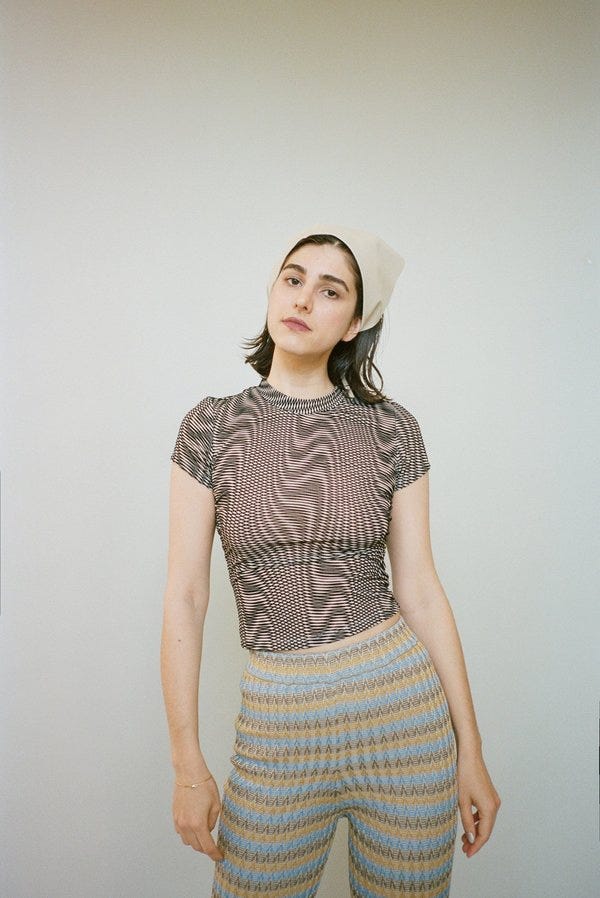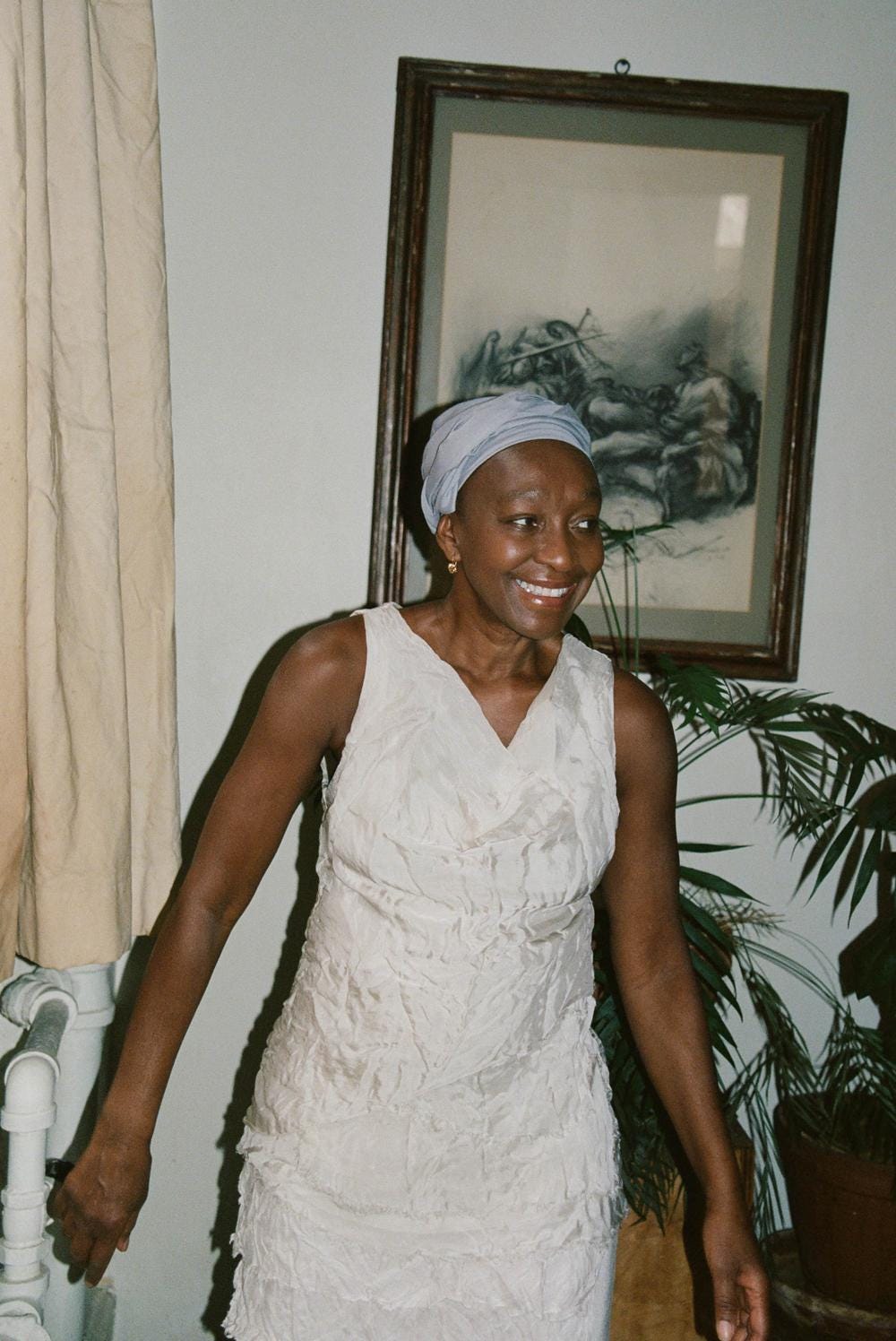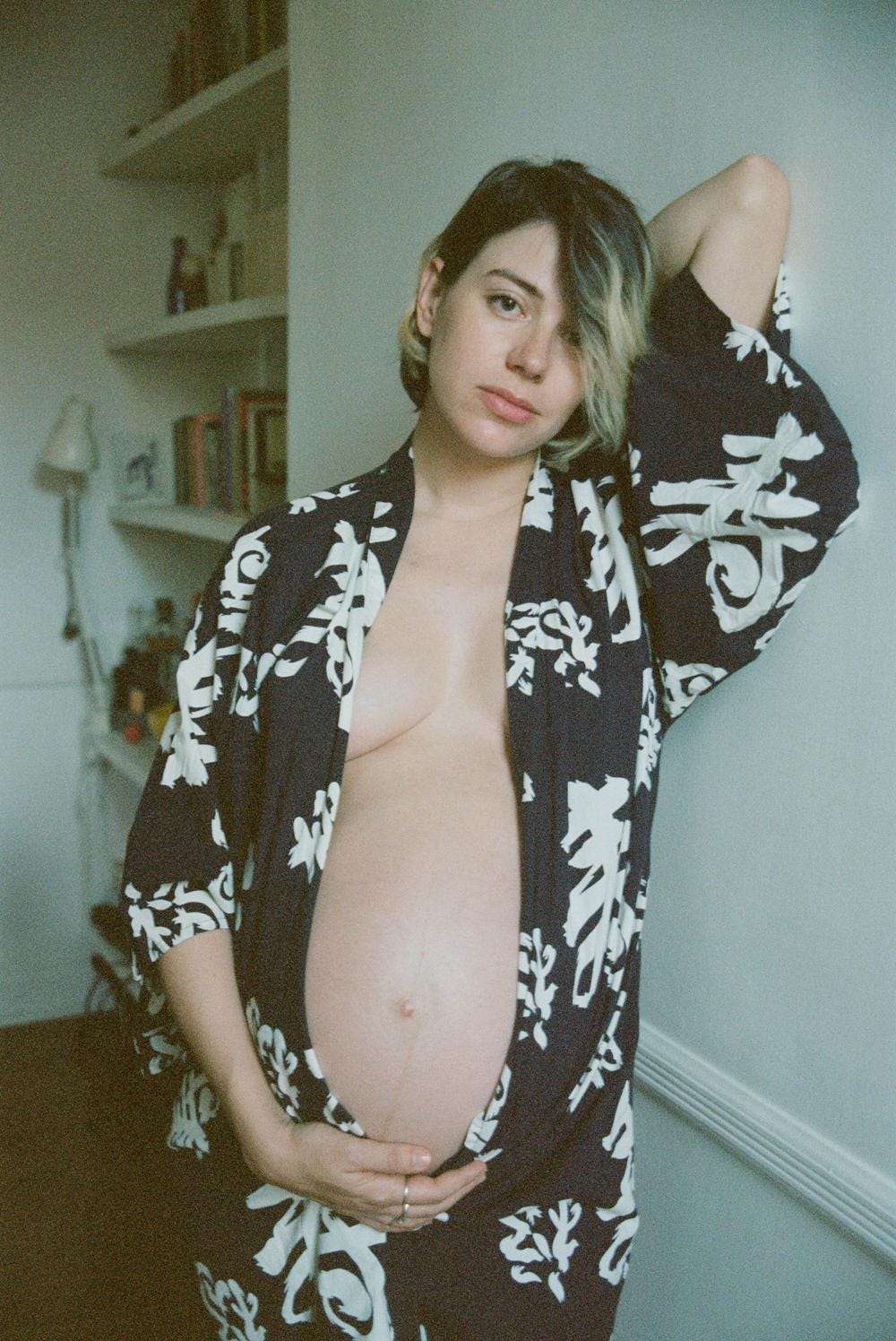#42 chatting passerby magazine with founder Clémence Polès
from the Interviewing Interviewers archive
One of the first things you can know about me is that interviews fascinate me. To a degree, I think they appeal to my perennial fixation with studying the ways people interact, down to how they play with their hands or avert their gaze as they ponder a question. Magic happens when someone is asked a question for the first time. Recently, going down the rabbit hole of Colin and Samir, Matt Alagiah, Zane Lowe, and their guests, reminded me of a series I launched last year and tucked away.
Interviewing Interviewers stemmed from a simple curiosity: what would it be like to, for once, interview those who interview others? I revel in observing their methodologies, fallbacks, lines of inquiry, knowing that one small detail changes the arc of a story. Gleaning the story they try to tell eagerly, and noticing how their own personalities, interests, and views come to light, I wonder if they desired to be asked, too. Intrinsically, I was motivated by the fact that I would get to talk to the people who loved and believed in this thing as much as I do.
To kick it off, I interviewed Clémence Polès about founding and running passerby, an online magazine and community celebrating women. A dream still to this day!—only that it was before the time of this newsletter, so it was mostly left quietly published. Fast forward to today, I’m dusting it off from the archive to run it here. Clémence still one of my biggest inspirations in her vision, and curiosity and care for people’s stories, I figured I have to give it another go. So here, the first instalment of the Interviewing Interviewers series!
passerby is an online magazine and community that celebrates women through intimate portraits, curated recommendations, and more. Miyako Bellizzi, Haley Nahman, and Beverly Nguyen are just some who have been featured, yet what is telling of the ethos of passerby are the names I didn’t yet know. There is no easy definition of the kind of woman that belongs on there—and there is no need for one—“every woman is a passerby woman”.
Clémence Polès, a creative director, photographer, and curator based in New York City, founded passerby due to her growing curiosity of the women that passed her by, from her subway seat neighbour to those she passed on the sidewalk. Since then, she’s also co-founded FFFest, a non-profit film festival that celebrates women in film.
A respite from reels and the like, passerby offers “a rare space for reflection on an increasingly busy internet”. Here I asked Clémence about how they continue to lean on intentionality and long-form storytelling, resisting the relentless speed of consumption these days.
And yet, passerby continues to evolve. If you have been following them for a while, you’ll know they have even gotten a name change. Read on for how the project outgrew its name, their approach to capturing intimate portraits, and why it’s important we celebrate every kind of woman.
Hi Clémence, can you share the story behind the name change from passerbuys to passerby?
I started passerbuys in 2015 as a shoppable street style site. Over the years, it evolved into something much different, outgrowing its name. passerby is still about turning our attention to those that ‘pass us by’, rather than those that dominate the media, but the shopping component was no longer at the core of the project.
My curiosity lies in how people live, and therefore what they surround themselves with, but my intention is not to define them by what they consume, nor make it a model. Quite frankly, we are constantly pushed to purchase, and I wanted to steer away from that.
I read that you started out doing everything for passerby, from conducting the interviews to photography and web design. In today’s creative landscape, what do you think about the specialist versus generalist conversation? Do you see one as favourable to the other?
If I could have had it my way, I would have outsourced everything. There is so much talent out there, and it can be quite frustrating when your skill set doesn’t match your vision. I did everything simply because there wasn’t a viable alternative.
At the time, I was waitressing full-time and couldn’t afford to get a website built, nor get a photographer for each profile—I had to learn those skills myself and make peace with it.
I don’t have any regrets, as I learned a lot; it helped me become a better producer, and discover a new passion for photography. To be a specialist or a generalist? At the end of the day, it depends on the level of perfection you strive for.
You also have a deep interest in film—how do you think that informs your work for passerby?
I wouldn’t say films necessarily inform our work for passerby, but everyone on the team is a cinephile, so our love of film definitely makes its way into our editorial. However, passerby has definitely informed my approach to film outside of it. Back in 2018, I co-founded a non-profit film festival, FFFest, that spotlights and celebrates women in film, elevating filmmakers we don’t hear from enough.
Having put forward that passerby provides a rare space for reflection on the internet, how would you say you intentionally carve out this space, and what would you like readers to take away?
There’s a tenderness to our interviews, we approach them with a deep curiosity that goes beyond accolades or credentials. I think our photos do a lot of that storytelling, so much so that our photoshoots inform our interviews. Our approach has always been to make our interviewees feel as comfortable as possible, and to present them in a way that closely reflects how they see and describe themselves.
Fact is, we admire women, and are in constant awe of them. Through our intimate portraits, we hope that readers will reflect on their relationships with women; how they look at them, how to listen to them, and most importantly, what they can learn from them. Under patriarchy, we often dismiss other women, or perceive them as threats. By having more of these stories, we are better equipped to challenge those norms.
How do you approach celebrating diversity and inclusivity in terms of profiles, stories, and tastes?
From the beginning, celebrating women has been our core mission—and that’s always meant women from many backgrounds and countries, resisting how easy it would have been for us to simply interview white women from the New York media world. But in recent years, we’ve also been pushing to be more diverse in terms of class.
What’s one thing that you thought you knew at the beginning of starting passerby that you now understand differently?
Going into passerby, I thought I would meet women who out-navigated all the extreme expectations that were set on them, but over the years I’ve discovered quite the opposite, how ungentle women can be with themselves. I understood that we had greater responsibility in how we portrayed the women we met, and how important (and often difficult) it was to break away from an aspirational lens.
In today’s world of abundant media, why the written word, and specifically, long-form interviews?
Our attention spans are not the same, that’s for sure, and in a capitalist society like the US, time proves more and more to be a luxury. My education was always pro-critical thinking, and so the written word, or long-form writing, is something I value. I’d like to think there will always be an appetite for it.
Now for a round of rapid fire questions... What’s a question that has shifted your worldview?
“What if you stopped drinking coffee?"
And a question or doubt you have that unsettles you?
“Will the next generation be able to build community rather than perform it?”
If you could be any object, what would you be?
An obvious answer, but I would most likely be a film camera.
Lastly, who’s an interviewer whose works you enjoy, and why?
The ones behind the New York Magazine’s Lookbook series. It takes a lot of work bringing people who’ve never been interviewed before out of their shell—as I’ve learned with passerby—and they do such a good job at doing it every time.
Learn more about Clémence on her Instagram and website, and check out passerby on their Substack, website and Instagram.
Interviewed in April 2022, slightly edited for clarity.












